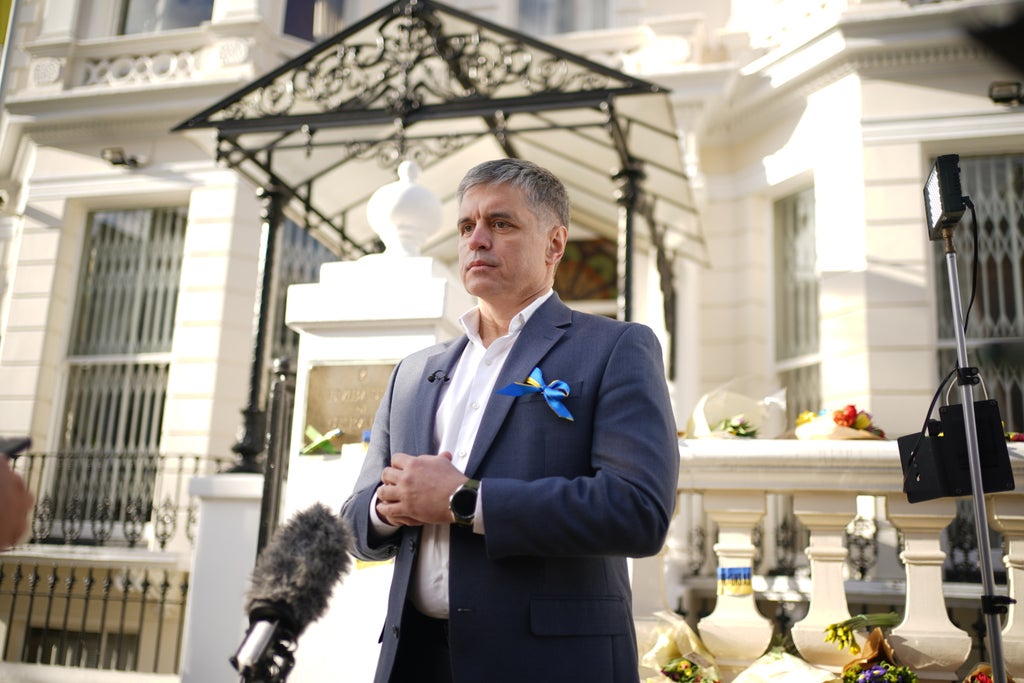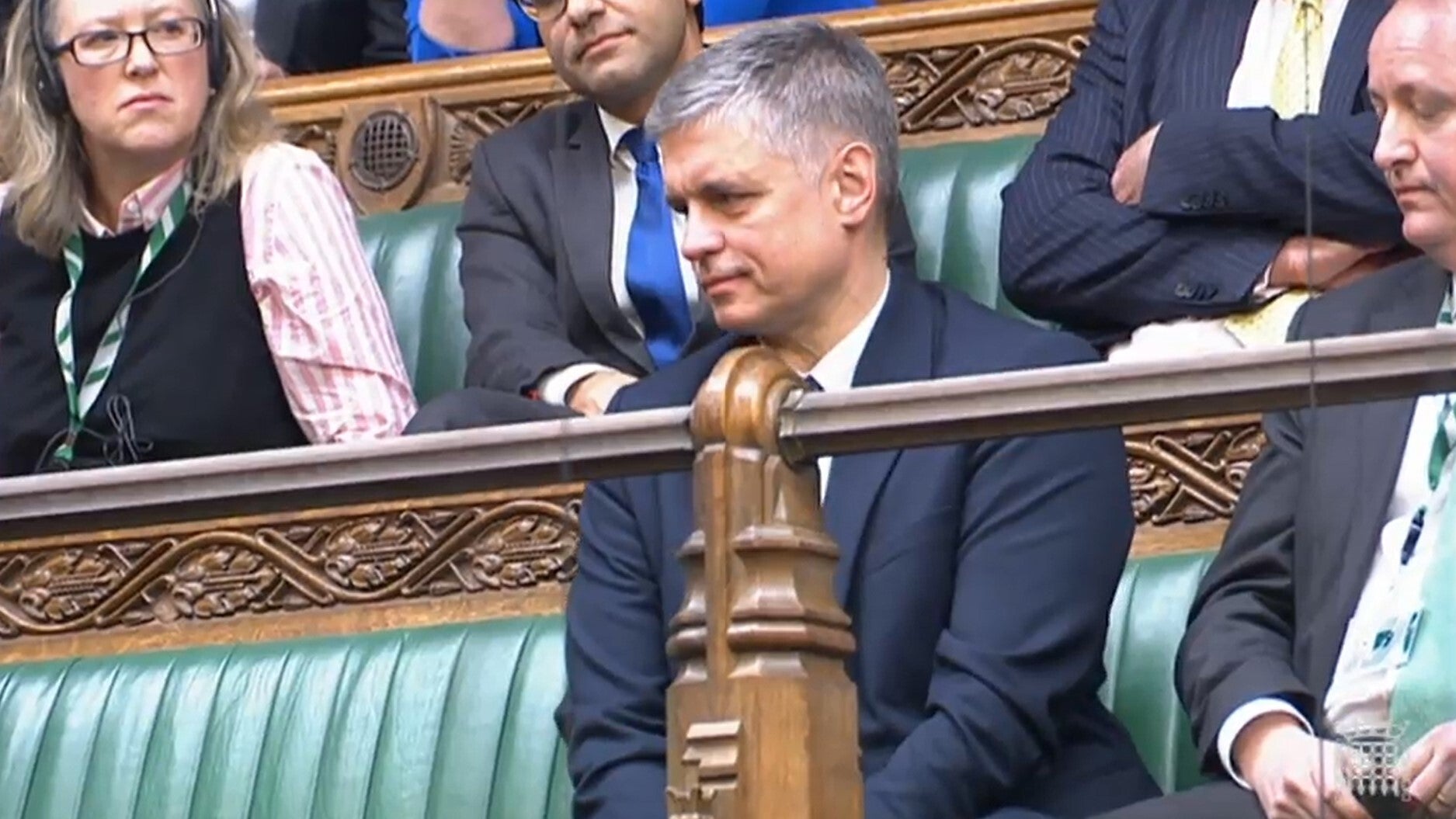
The Ukrainian ambassador said there have always been “bureaucratic hassles” involved with applying for UK visas – including for his wife – even before the conflict with Russia sparked a refugee crisis.
Vadym Prystaiko told MPs that Kyiv would like to see visa requirements for fleeing Ukrainians dropped amid criticism that the Home Office has been slow in providing sanctuary to those escaping the invasion.
He said at least 100,000 people could try to reunite with relatives in the UK via the Ukraine Family Scheme, but criticised the process for approving new arrivals.
To process visas, there was always bureaucratic hassles
The diplomat told the Commons Home Affairs Committee that visa applications had been “tough” for Ukrainians “even before the war” with Moscow started last month.
He said: “To process visas, there were always bureaucratic hassles.
“I have to tell you that even when I was coming here as ambassador I got my visa on time, (but) although I was already approved by your Government, my wife didn’t have it.
“So even simple things like that – the bureaucracy is so tough.”
In an update on Wednesday, Transport Secretary Grant Shapps said 760 visas have now been granted to Ukrainians, with 22,000 applications “on their way through”.
But Mr Prystaiko called for visa requirements to be “dropped for some period of time” to allow the “maximum” number of Ukrainians into Britain, pledging that his embassy will “help deal” with any influx.

However, he said he does not expect “many of them to come”, adding that most departing Ukrainians want to remain close to their homeland.
“I want to tell you straight away that the natural place for Ukrainians is close to most of our Slavic tribe, if I can put it like that – independent nations like Poland and Slovakia, where people do not have any language barrier,” he told the committee.
“Most Ukrainians will naturally stay close to their homes, to their roots, because families are unfortunately split – the elderly, the women with kids fled Ukraine when most of the men and women are fighting back home.”
Mr Prystaiko welcomed the offer of NHS treatment for those coming to the UK, but said Ukrainians do not want to be a “burden” on the health and social systems, with many of them ready to get started on their own business ventures.
“Most of these people are well-educated and have their own business ideas – most of them are in professions which can be done remotely, like IT,” he added.
With around 50,000 to 60,000 Ukrainians said to be in Britain, Mr Prystaiko said he expects 100,000 of their relatives to try to join them.
However, the ambassador appeared unaware that some Ukrainians working in the UK will not be eligible to bring relatives over as they do not have indefinite leave to remain.
He said he will be talking to Home Secretary Priti Patel about the matter.
“I thought that this covered the principle that everybody who is legally here can use the system,” he said.
“It might come to the more bureaucratic process which we are actually trying here to cut, but we’re happy to work with your Home Office to try to understand how we can do it easier.”
Separately, the Kyiv representative praised the “good intentions” of people sending donations for those affected by the conflict – including donating bicycles for children – but warned it is “not possible” to get them to Ukraine.
He implored Britons not to travel to his country, adding: “We don’t want to have to take care of yet another citizen of the UK on our territory instead of fighting.”







